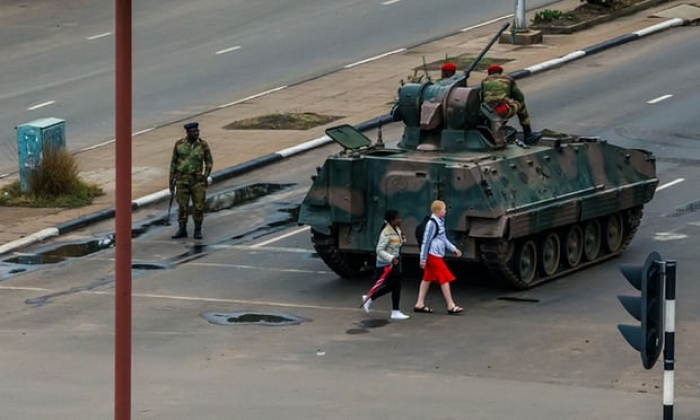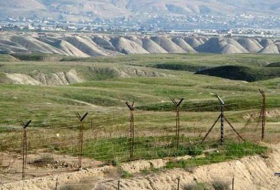The Zimbabwean capital remained tense but calm despite the political uncertainty. Troops have secured the airport, government offices, parliament and other key sites. The rest of the country was also peaceful.
The takeover by the armed forces appears to have resolved a bitter battle to succeed Mugabe, which had pitted his wife Grace against the former vice-president, Emmerson Mnangagwa.
Mnangagwa was reported to have returned to Zimbabwe on Tuesday evening from South Africa, where he fled last week after being stripped of his office by Mugabe in an apparent attempt to clear Grace Mugabe’s path to power.
Reports that Grace Mugabe had fled to Namibia on Wednesday appeared false, with several sources saying she was detained with her husband in their residence in Harare..
The future of the first lady is a key element in the ongoing discussions between Mugabe and the military. Singapore and Malaysia, where the Mugabes own property, are potential destinations if she is allowed to travel into exile.
Forty-eight hours of drama and confusion had begun on Monday when the army chief – flanked by other senior officers – warned he was prepared to “step in” to end turmoil in the ruling Zanu-PF party.
By Wednesday, it was “game over” for Mugabe, as Piers Pigou, a South Africa-based analyst for the International Crisis Group put it. “It’s just a question of how soft the landing is .... But the [army] still need him to provide a veneer of legitimacy and constitutionalism. If he doesn’t want to play ball that is a bit of a problem.”
The 93-year-old has ruled over Zimbabwe like a medieval monarch, favouring loyal followers with gifts of land, office and money, but pursuing those seen as traitors with a cruelty only marginally moderated by a residual respect for legal process.
A former guerrilla leader, Mugabe was ready to sacrifice his country’s economy to maintain his grip on power, turning to increasingly tired revolutionary rhetoric, corruption and coercion to stave off any threats. Few other than the close associates who benefited directly from Mugabe’s rule will mourn his passing from power.
One high-profile opposition leader said there was “a lot of talking going on”, with the army “reaching out to different factions to discuss the formation of a transitional government.
Negotiations had been ongoing for several months with “certain people within the army”, a second senior opposition official said.
The official said Mugabe would resign this week and be replaced by Mnangagwa, with opposition leaders taking posts as vice-president and prime minister. There was no independent confirmation of his claim.
Zimbabwe’s fragmented opposition has not publicly condemned the military move. Nelson Chamisa, the deputy head of the opposition MDC party, called for “peace, constitutionalism, democratisation, the rule of law and the sanctity of human life”.
Tendai Biti, an opposition leader, called for a “roadmap back to legitimacy”.
More about: #Zimbabwe
















































